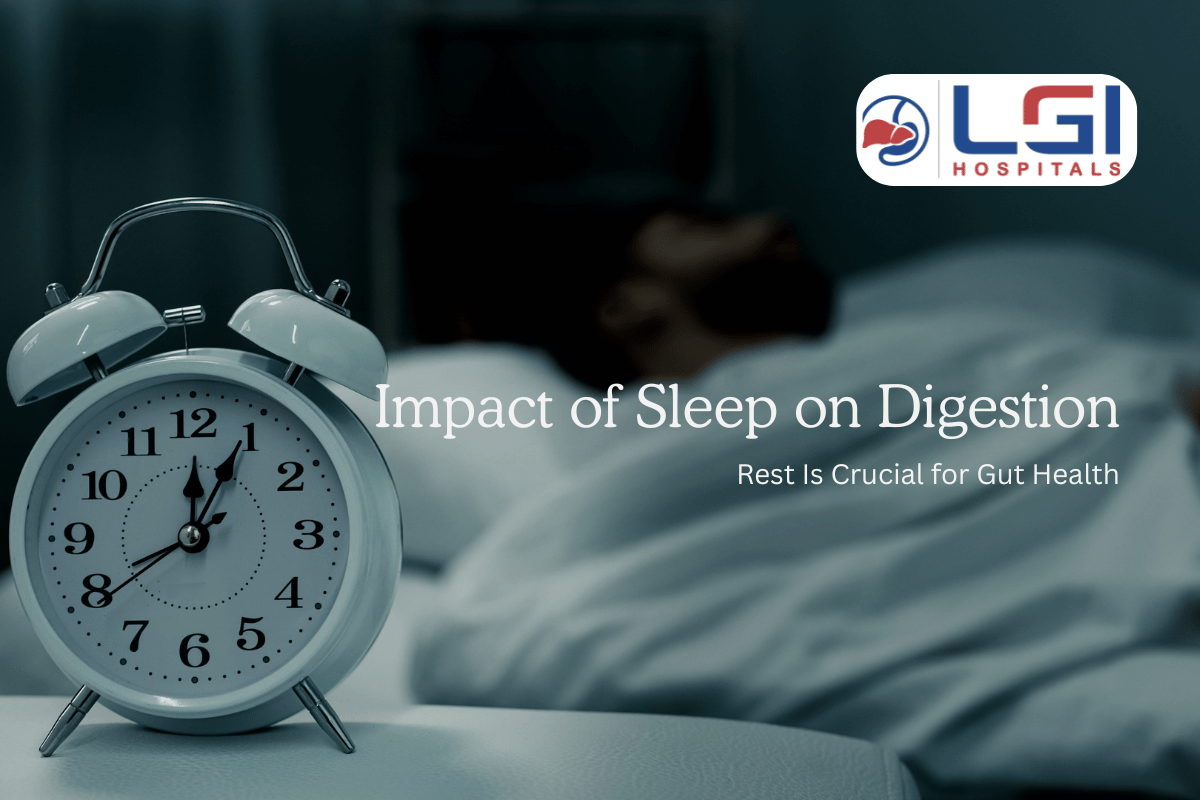Acquiring quality sleep is often viewed solely through the lens of energy and mood, yet the impact of sleep on digestion is profound, yet its influence on digestive health is profound. From gut motility and enzyme secretion to microbiome diversity and hormone regulation, the bidirectional relationship between sleep and digestion underpins overall well-being. Poor sleep can trigger bloating, constipation, acid reflux, and nutrient malabsorption, while digestive discomfort can disrupt sleep patterns. Understanding these connections empowers you to adopt sleep and lifestyle habits that support a healthy gut and, in turn, enhance sleep quality.
The Impact of Sleep on Digestion and Gut Health
The digestive tract follows a circadian rhythm synchronized with your sleep-wake cycle. During deep sleep, the body allocates resources to repair the gastrointestinal (GI) lining and restore microbial balance. Key mechanisms include:
- Migrating Motor Complex (MMC): Overnight, phase II of the MMC slows, reducing primary peristalsis and conserving energy for cellular repair.
- Hormonal Balance: Sleep regulates ghrelin and leptin the hunger and satiety hormones optimizing appetite control and preventing overeating.
- Melatonin’s Dual Role: Produced at night, melatonin not only initiates sleep but also modulates GI motility and gut barrier integrity, reducing intestinal permeability333.
Consequences of Poor Sleep on Digestion
Increased Intestinal Permeability and Inflammation
Chronic sleep deprivation elevates cortisol, which can compromise the intestinal barrier (“leaky gut”) and spur systemic inflammation. Toxins and undigested food particles entering circulation may manifest as bloating, cramps, and food sensitivities. One major impact of sleep on digestion is its role in gut motility.
Altered Gut Microbiome
Short-term severe sleep restriction reduces microbiota richness, weakening the functional repertoire of gut bacteria, while long-term poor sleep shifts microbial diversity toward pro-inflammatory species, heightening the risk of disorders like IBS or IBD.
Hormonal Imbalances and Cravings
Insufficient sleep disrupts ghrelin and leptin rhythms, leading to increased appetite often for high-fat, high-sugar foods that further burden digestion and foster dysbiosis.
Slower Gastric Emptying and Reflux
Eating late or lying down immediately after a heavy meal overloads a sluggish MMC, promoting acid reflux and heartburn due to prolonged gastric retention in the supine position.
India-Specific Considerations
- Late Dinners & Festive Feasts: Extended evening meals often rich in ghee, spices, and sweets leave little time for gastric emptying before bedtime.
- Shift-Work Patterns: Many Indians work irregular hours, disrupting sleep–digestion rhythms and increasing GI complaints.
- Cultural Beverages: Late-night chai or coffee consumption impairs melatonin production and delays sleep onset, compounding digestive stress.
Best Sleep Practices for Optimal Digestion
- Consistent Sleep–Wake Schedule: Maintain bed and wake times within an hour daily to reinforce circadian signals for digestive organs.
- Early, Light Dinner: Finish eating at least 2–3 hours before bedtime; opt for light, fiber-rich meals like khichdi, steamed vegetables, or dal to aid gastric emptying.
- Left-Side Sleeping: Gravity helps keep gastric contents below the lower esophageal sphincter, reducing nocturnal reflux.
- Sleep-Friendly Environment: Keep the bedroom cool, dark, and quiet; avoid screens 30 minutes before bed to support melatonin release.
- Target 7–9 Hours: Adults should aim for restorative sleep; short sleep (<6 h) correlates with increased inflammation and poorer gut function.
Expanding Insights: Research Highlights & Anecdotes
Recent studies reveal that even two nights of restricted sleep (2 h per night) reduce gut microbiota richness without altering core taxa abundance, signaling potential long-term health impacts if sleep disturbances recur222. In one gastroenterology clinic in Delhi, a series of patient anecdotes described resolution of chronic bloating and improved bowel regularity after adopting a consistent sleep routine and adjusting meal timings underscoring the power of simple, culturally apt interventions.
Quick-Reference Checklist
- Maintain a regular sleep–wake cycle.
- Finish dinner by 7–8 PM; favor light, fiber-rich dishes.
- Avoid caffeine after 3 PM.
- Sleep on your left side; elevate the head of the bed if needed.
- Limit late-night screen use; include 10 minutes of meditation or gentle yoga in your wind-down routine.
Signs You Need Better Sleep for Gut Health
- Persistent bloating, gas, or constipation despite dietary changes
- Frequent nocturnal heartburn or acid reflux episodes
- Morning cravings for sugary or processed foods
- Daytime fatigue accompanied by GI discomfort
Frequently Asked Questions
Q1. How soon after eating should I sleep?
Allow at least 2–3 hours between dinner and bedtime to ensure adequate gastric emptying and reduce reflux risk.
Q2. What is the best sleeping position for digestion?
Sleeping on your left side helps keep stomach contents below the LES, minimizing heartburn and aiding gastric emptying999.
Q3. Can poor sleep cause constipation?
Yes. Sleep deprivation disrupts autonomic control of gut motility and alters microbiota, slowing bowel movements and leading to constipation.
Q4. How much sleep is optimal for digestive health?
Aim for 7–9 hours of high-quality sleep nightly; habitual short sleep (<6 h) links to increased inflammation and impaired gut function.
Q5. Will improving sleep automatically fix digestive issues?
Enhanced sleep is foundational but should be combined with balanced diet, hydration, stress management, and regular activity for best gut health outcomes.
Prioritize consistent, restorative sleep as a core pillar of digestive wellness alongside nutrition and movement to fortify your gut–brain axis, optimize nutrient absorption, and minimize GI disturbances. By integrating these evidence-based, culturally tailored strategies, you can achieve lasting harmony between rest and digestion.
Learn more about improving gut health naturally in our guide to balanced digestion.

